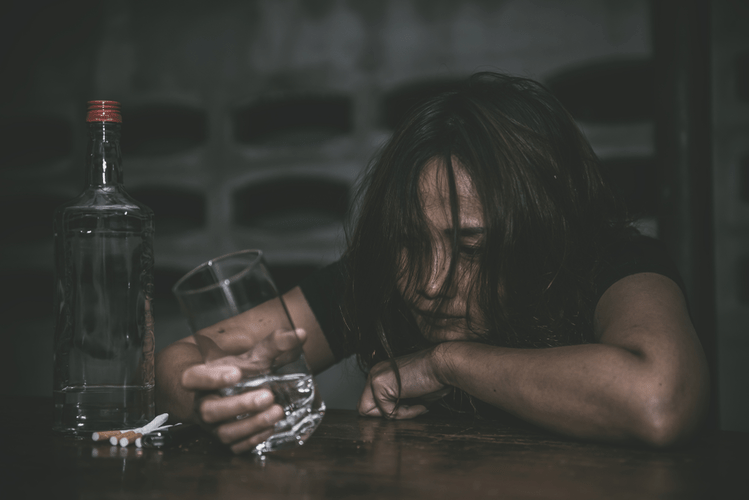The earlier people in recovery can identify and successfully respond to triggers, the greater their chances of prolonged abstinence. Discussions often revolve around dealing with everyday situations without turning to substances. If the temptation to use again becomes too overwhelming, don’t hesitate to seek professional help. Certified addiction specialists can guide your recovery and relapse prevention journey. Groups like Alcoholics Anonymous, Narcotics Anonymous, and SMART Recovery provide invaluable help, resources, and substance abuse group activities. They also offer a safe space for group members to talk about their struggles and learn to cope without substances.
What are some effective relapse management strategies?
The HALT acronym helps those in recovery keep an eye on some of the most basic human needs that can lead to or intensify triggers if not fulfilled. Being in any one of the HALT states reduces a person’s ability to cope with stress and increases impulsivity. If you are concerned that you or a loved one is close to relapsing back into their addiction, please do not delay getting the help needed.
- These transitions combine multiple triggers simultaneously—stress, emotional reactions, practical challenges, and sometimes environmental changes that expose you to new risks.
- The journey involves ongoing self-awareness, proactive planning, and support from professionals and community groups.
- In some cases, these can be relapse triggers, meaning they lead to substance re-use.
- Sometimes, emotional triggers come with thoughts like, “I can’t handle this,” or “I need relief now,” which signal that cravings may be surfacing.
- Creating a supportive environment with understanding individuals around you can greatly improve your resilience.
Warren is a Licensed Master Social Worker, who specializes in substance abuse and mental health treatment. Clinically, Warren has developed a therapeutic skillset that utilizes a strengths-based perspective, Twelve Step philosophies, Cognitive Behavioral Therapy and Motivational Interviewing. Boredom can be a slippery slope if you’re not ready to tackle it head-on.
The Benefits of Having a Recovery Mentor or Sponsor
Moreover, creating a personalized relapse prevention plan can empower individuals by highlighting healthy habits and grounding methods to counteract cravings. Embracing a mindset of lifelong learning reinforces resilience against triggers, paving the path to lasting sobriety. Health services play a significant role in addiction recovery, particularly in managing triggers that may lead to relapse.
Anxiety
Meeting old friends may cause you to reminisce about old times, romanticizing alcohol or drug addiction. But there are typically two kinds of friends who may be external triggers for drug or alcohol use. At Recovery Guide, our mission is to connect as many individuals struggling with mental health and substance abuse disorders to reputable treatment facilities. Emotions like sadness, anger, loneliness, shame, and boredom frequently trigger relapse. Many people developed patterns of using substances to self-medicate these feelings, creating neural pathways that automatically respond to emotional discomfort with substance cravings. Stress consistently ranks as the number one relapse trigger across all substance types.

Celebrations, achievements, and feelings of happiness can create a dangerous sense that “just one” drink or drug use is deserved or can be controlled. Our dual diagnosis approach https://club.3peat.dev/2024/05/16/sobriety-tattoo-ideas/ at 12 South Recovery helps clients address physical and mental health needs while maintaining recovery priorities. Our brains create strong associations between substances and the environments where we used them.
- They can also build up their coping skills to help them better handle difficult situations.
- On average, about 40-60% of people who suffer from substance use disorder will relapse at some point.
- Internal triggers are thoughts, memories, or physical sensations that prompt cravings.
- For many people, drug and alcohol use began as a way to alleviate boredom or make certain activities feel more fun.
- To do this effectively, start by becoming more aware of your emotional and physical reactions in various situations.
Setting up a system to reach out if they sense you may be heading toward a relapse might also be helpful. This way, you can ensure that someone will be there to remind you of the benefits of sobriety and provide support. The final stage is succumbing to temptation and engaging in drug or alcohol use again. This could involve going to a bar or liquor store, contacting your dealer, or retrieving your old stash.
Negative Emotions
It’s important for people in recovery to be aware of the internal triggers they struggle with the most and have a plan in place to seek support when needed. While holidays are a time of celebration for some, they may be a struggle for people in recovery. Family and friends often tempt those in recovery to consume alcohol because they are under the misconception that one deviation from the treatment plan will not be detrimental.
High-Risk Situations

If you’d like to learn more about our sober types of relapse triggers living houses and outpatient support options, please contact the Eudaimonia Recovery Homes admissions team today. Structure gives your brain fewer opportunities to wander into risky territory. A stable routine can also help regulate your mood, energy, and motivation—especially during stressful or emotionally flat periods.
Proactively avoiding high-risk situations and staying away from reminders of past substance use is key to minimizing the risk of relapse due to exposure to substances. By being aware of your triggers and taking conscious actions to limit your exposure, you can stay on the path of recovery. Physical pain, whether it be chronic pain or pain from an injury or physical illness, can be a powerful relapse drug addiction trigger if you’re not adequately prepared to manage it. Any number of sights, sounds, and smells could take you back to a time or place where you used drugs or alcohol. This could be a pleasant memory of “good times” had while using certain substances or a difficult memory of arrest, sickness, overdose, or fights with others over your substance abuse. According to the National Institute on Drug Abuse, between 40 and 60% of people who receive treatment for drug addiction will experience relapse.